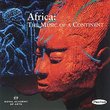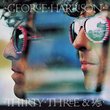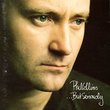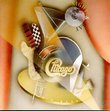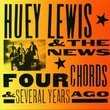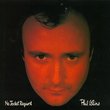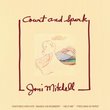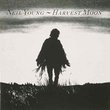| All Artists: Chicago Title: Twenty 1 Members Wishing: 0 Total Copies: 2 Label: Warner Bros / Wea Original Release Date: 1/29/1991 Re-Release Date: 1/16/1991 Genres: Pop, Rock, Classic Rock Styles: Adult Contemporary, Soft Rock, Album-Oriented Rock (AOR) Number of Discs: 1 SwapaCD Credits: 1 UPCs: 075992639125, 075992639149 |
Search - Chicago :: Twenty 1
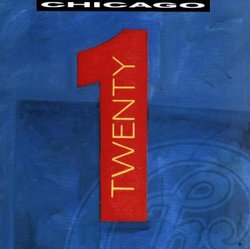 | Chicago Twenty 1 Genres: Pop, Rock, Classic Rock
Chicago 21 Chicago 1.Explain It to My Heart 2.If It Were You 3.You Come to My Senses 4.Somebody Somewhere 5.What Does It Take 6.One from the Heart 7.Chasin' the Wind 8.God Save the Queen 9.Man to Woman 10.Only Time Can Hea... more » ![header=[] body=[This CD is available to be requested as disc only.]](/images/attributes/disc.png?v=4eeb5dd5) ![header=[] body=[This CD is available to be requested with the disc and back insert.]](/images/attributes/disc_back.png?v=4eeb5dd5) ![header=[] body=[This CD is available to be requested with the disc and front insert.]](/images/attributes/disc_front.png?v=4eeb5dd5) ![header=[] body=[This CD is available to be requested with the disc, front and back inserts.]](/images/attributes/disc_front_back.png?v=4eeb5dd5) |
Larger Image |
CD DetailsSynopsis
Product Description Chicago 21 Chicago 1.Explain It to My Heart 2.If It Were You 3.You Come to My Senses 4.Somebody Somewhere 5.What Does It Take 6.One from the Heart 7.Chasin' the Wind 8.God Save the Queen 9.Man to Woman 10.Only Time Can Heal the Wounded 11.Who Do You Love 12.Holdin' On Similar CDs
Similarly Requested CDs
|
CD ReviewsWarner Bros. Gets Blackjacked by Windy City Boys Robby Icellosconi | Chicago, IL United States | 05/16/2004 (3 out of 5 stars) "Being Chicago's last studio record full of original material, Chicago Twenty 1 offered a sonic glimpse of a power ballad dinosaur being put out to pasture. Only one song, "Chasin' the Wind," would barely chart in top 40 territory. For Chicago, this was a long-welcomed failure: the record company pushed Chicago's buttons, the hit machine gave them what they wanted, and the formula did not yield expected results! Sadly, Twenty 1 would mark another post-departure effort for the group: original drummer Danny Seraphine was allegedly voted out of the band in favor of session drummer, Tris Imboden.Sonically, the record shimmers with Ron Nevison and Humberto Gatica serving as engineers/producers. This was Chicago's first slab recorded entirely in the digital domain (recorded, mixed and mastered in digital). Even though a couple or so tunes have compromised or absent horn arrangements, I could still get into them (e.g. "Somebody Somewhere," "Man to Woman," "Holdin' On"). Expectedly, the studio musicianship is no let-down with help from Tom Keane, Michael Landau, David Foster, and Steve Porcaro. The songwriting is good, lyrically lacking, but good (Chicago never had a Bob Dylan or Roger Waters; their music always spoke volumes). Of course, Diane Warren makes contributions with encouragement from the powers that be. Sorry, but Diane Warren and Chicago, for the most part, do not pair well. Twenty 1 is not as magical or hit-worthy as 17 or 18, but there's still some good stuff here. First off, let me express my lack of enthusiasm for certain tunes. "Chasin' the Wind," in typical Diane Warren fashion, is barely more than a 4 chord formula---not much that the horn guys could augment, arrangement skills notwithstanding (and basically, they didn't). There is something unsettling in the choruses of "Only Time Can Heal the Wounded," perhaps it's the repetitiveness. The horn solo and key change are really cool, though. "Who Do You Love" just doesn't do it for me, though Bill Champlin's voice almost redeems the track. Now for positivity. "Explain It To My Heart" is probably one of Diane Warren's best songs. Jason Scheff and Bill Champlin share the lead vocal, complimenting one another nicely. In my opinion, Diane Warren is best known for lyrical sentiment and in this tune, it's as good as it gets: the mind can come to terms with a break-up, but the heart cannot. I love the key change with the horns, too (Diane Warren didn't write that, did she?). "If It Were You" is one of my favorites, with an upbeat tempo, killer horn arrangement and bassline. Presented with a critical relationship dilemma, "would you hold on... or just give up forever that part of your life... what would you do if it were you?" "You Come To My Senses" is a nice ballad... wussy, but nice. "Somebody Somewhere" is a good rock tune, co-penned and sung by Bill Champlin. "What Does It Take" is good. The guitar solo rocks! "One From the Heart," sung and cowritten by Robert Lamm, has a cool swing feel that reminds me of "Does Anybody Really Know What Time It Is?" "God Save the Queen" is an awesome, funky number about impending environmental doom: "God save the queen, dear Mother Earth is dying away." In shades of 18's "One More Day," the song offers the same optimism: "one more tomorrow depends on today." "Man to Woman" is another decent love song. "Holdin' On" is another Scheff/Champlin duet---a splendid ballad with a gorgeous vocal and instrumental arrangement (my favorite on Twenty 1, anyway). As the final track, it should have, perhaps, served as Chicago's testament for what it had endured and was about to endure again: waning commercial success, popularity, corporate support, etc. After Chicago Twenty 1, it was definitely time for a change. The original studio effort, Chicago 22 (Stone of Sisyphus), would never be released by Warner Bros. They would not allow Chicago to creatively reinvent itself, despite lessons learned (?) in losing at Twenty 1. Twenty 1 ends another important chapter in Chicago's history, and is overall, a good listen---well worth the money. It's definitely a good buy that stands on its own as good music." Only so-so Rollie Anderson | Forney, Texas United States | 05/04/2005 (3 out of 5 stars) "Was this cd the reason Chicago stopped making new music? It might be a disappointing effort but it isn't a total loss by any means. "Chasing the wind" "Explain it to my heart" and "God save the Queen" are very good cuts that I look forward to when I put this one on. But 3 good ones don't make up for the mediocre songs that remain. It's just that the tunes are not well-written because the production and musicianship are top-notch, as always. And the vocals are outstanding throughout. I only wish they had continued to push onward considering the great songwriters they have in the band." Most of the songs sound the same! sfleck@cyburban.com | 07/13/2003 (2 out of 5 stars) "OK - to start, let's take the typical "80s ballad formula" on which most of "Twenty One" is based: massive rhythm section, layers of fizzy keyboards, VERY high lead vocals, and a wailing guitar solo after the second chorus. Rounded off with a highly original key change thrown in for good measure (as on "Explain It to My Heart" and "You Come to my Senses.")This approach certainly worked for Peter Cetera-period Chicago (and for that matter, innumerable 80s soft-rock groups.) Therein lies the major flaw with this release. While there are a few good tracks scattered around the album (the best being "God Save the Queen" and "If It Were You," funky & reminiscent of early Chicago with the famed horn section back with a vengeance!), much of the material could have been released by Bryan Adams, Michael Bolton, Def Leppard, or Bon Jovi. It's simply not "real" Chicago, just a collection of (mostly) externally-written, bland love-songs, most of which sound more or less identical."Chasing the Wind" sounds excellent when it starts with just keyboard & Bill Champlin's vocals, but predictably deteriorates into yet another over-produced power-ballad, with (you guessed it!) the cliched, way-over-the-top squealing guitar solo!There are still some flashes of brilliance - in places, the horns nearly come to the rescue - but somebody in the record company killed this band's creativity - WHY was Stone of Sisyphus never released????Well if recent talk / rumours are anything to go by, Chicago XXVII is on the way, which should be a big improvement & something to look forward to!"
|

 Track Listings (12) - Disc #1
Track Listings (12) - Disc #1